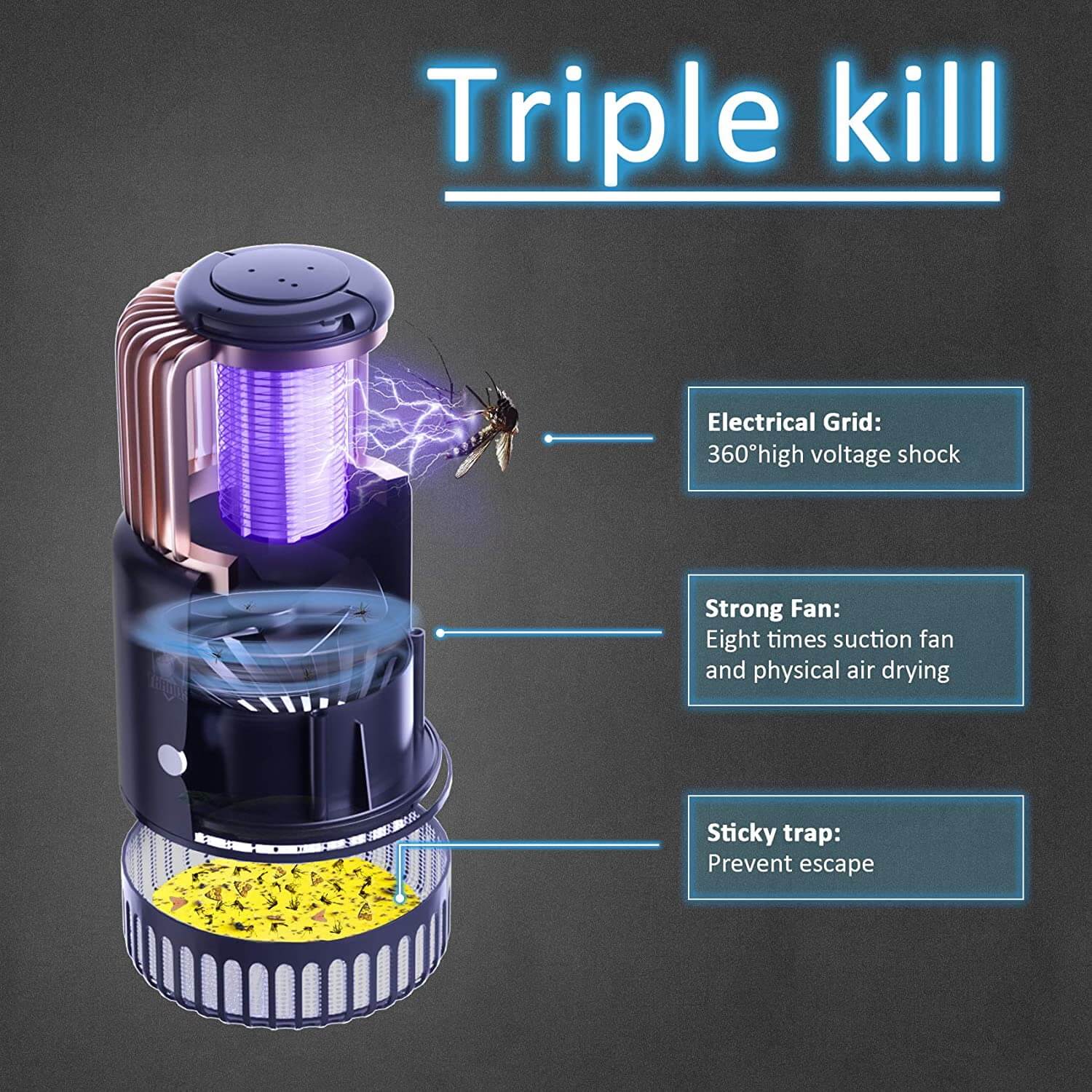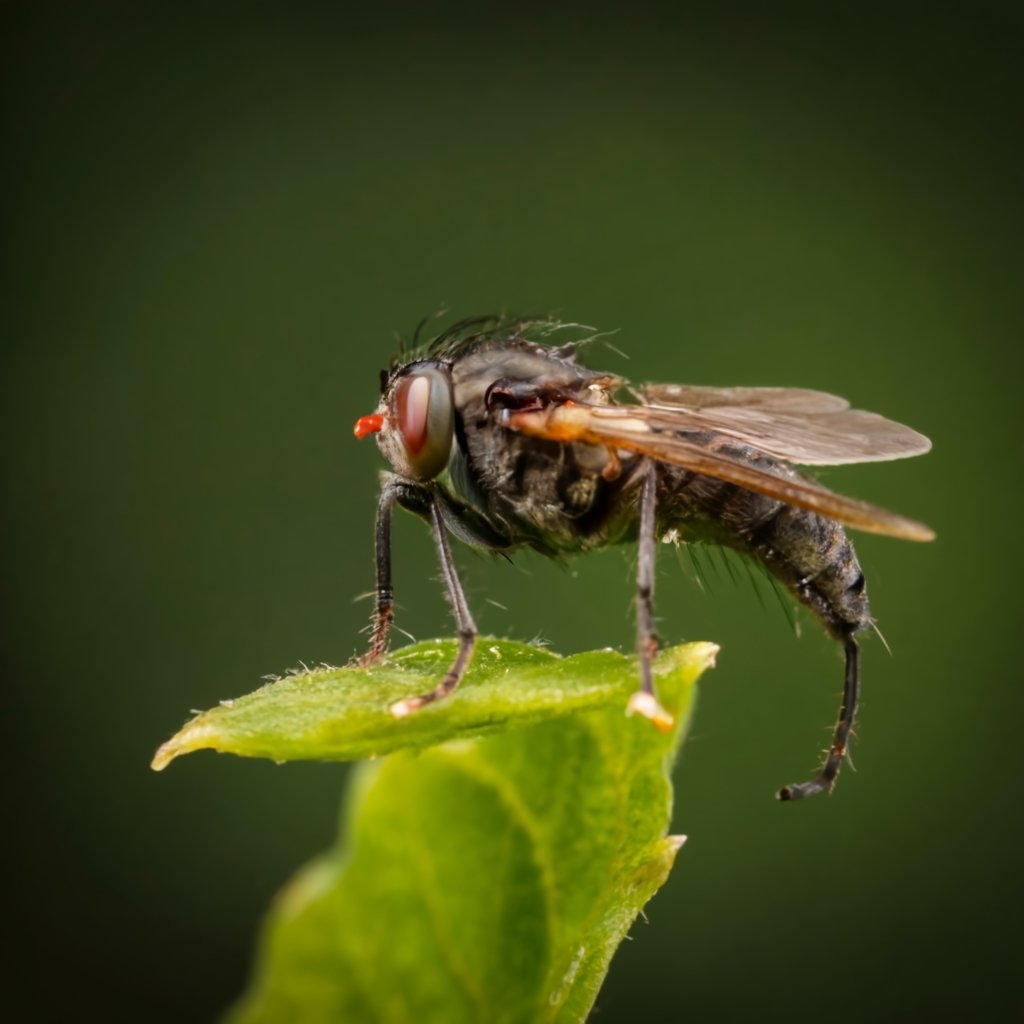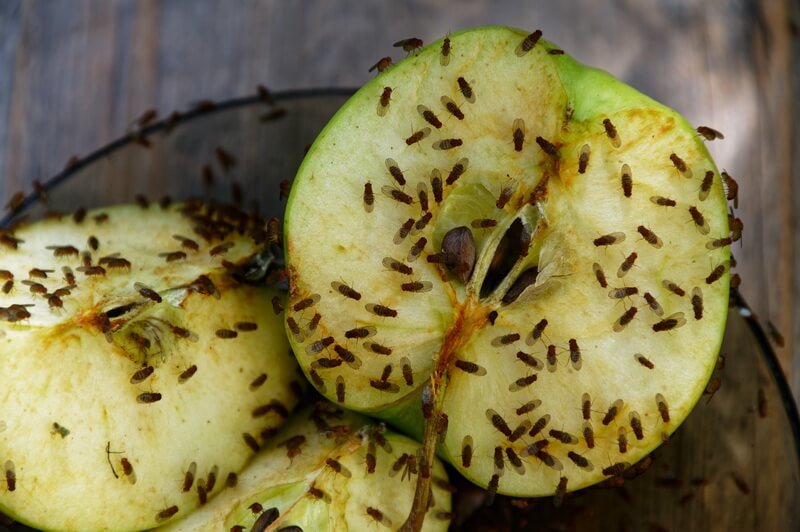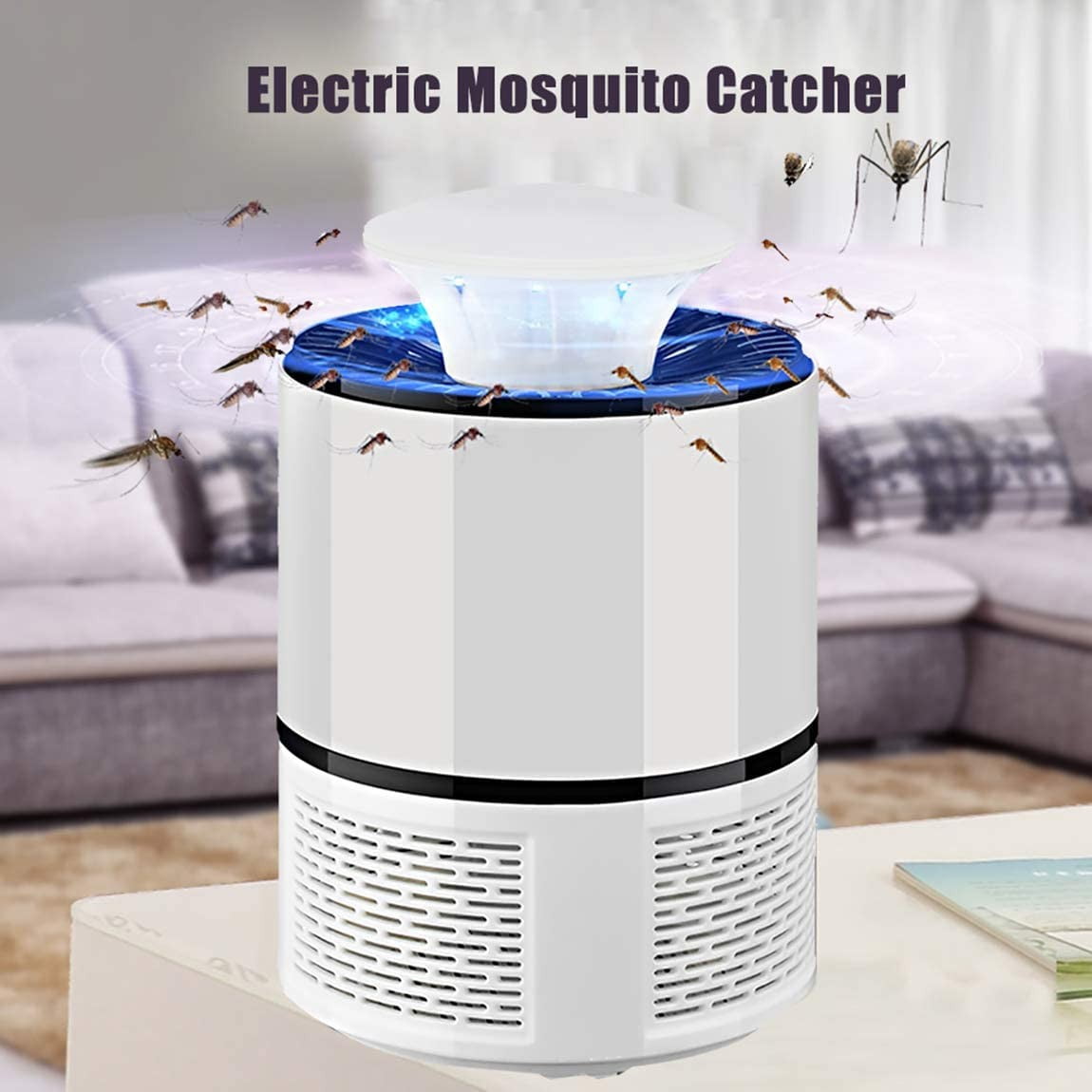Do Bug Zappers Work For Flies

The summer evening air hung thick and heavy, buzzing not just with the promise of fireflies, but also the insistent drone of flies. A family sat on their porch, lemonade sweating in their hands, the electric blue glow of a bug zapper crackling in the corner. Were those satisfying zaps actually making a dent in the fly population, or just adding to the ambient noise of the night?
The question of whether bug zappers effectively control flies is a common one, particularly during peak fly season. While the devices certainly electrocute insects, the scientific evidence suggests they are far more effective at attracting and killing non-target insects, with minimal impact on fly populations.
The Lure of the Light: How Bug Zappers Work
Bug zappers, also known as electric insect killers, have been around for decades, promising a high-tech solution to pesky insect problems. They typically consist of a light source, often ultraviolet (UV) light, surrounded by an electrified grid. Insects are attracted to the light, fly into the grid, and are electrocuted.
The blue or UV light is the key attractant. The theory is simple: lure the bugs in, zap them, and enjoy a bug-free environment.
Why Flies Aren't Fooled (Often)
While bug zappers are effective at attracting and killing some insects, flies are not typically high on that list. Several factors contribute to this relative ineffectiveness.
Firstly, many common fly species are more attracted to other cues, such as odors and decaying organic matter, than to UV light. A juicy piece of fruit or a compost bin will likely prove far more enticing than the blue glow of a bug zapper.
Secondly, the timing of fly activity often doesn't align with the zapper's peak effectiveness. Many fly species are most active during the day, while bug zappers are most effective at night when there is less competing light.
Finally, some studies suggest that the UV light emitted by many bug zappers is not the optimal wavelength to attract flies specifically. The light may be more appealing to other insects, inadvertently drawing them into the zap zone while the flies remain relatively uninterested.
Collateral Damage: The Unexpected Victims
Perhaps the most significant concern surrounding bug zappers is their impact on non-target insects. Numerous studies have shown that bug zappers kill a wide range of insects, including beneficial species like moths, beetles, and even pollinators.
A study conducted by the University of Delaware, for example, found that less than 1% of insects killed by bug zappers were actually mosquitoes or biting flies. The vast majority were other insects, many of which play important roles in the ecosystem.
This indiscriminate killing is a serious issue. Pollinators are essential for agriculture and biodiversity, and many other insects serve as food for birds and other animals. Eliminating these insects can have cascading effects throughout the food web.
The Alternatives: Effective Fly Control Strategies
If bug zappers aren't the answer for fly control, what is? Fortunately, there are several effective and environmentally friendly strategies to manage fly populations.
Eliminating Breeding Grounds
One of the most effective ways to control flies is to eliminate their breeding grounds. Flies lay their eggs in decaying organic matter, such as garbage, compost, and animal waste. Regularly cleaning and disposing of these materials can significantly reduce fly populations.
Traps and Baits
Fly traps and baits are another effective option. These devices use attractive scents or substances to lure flies in, trapping or poisoning them. There are numerous commercially available traps and baits, as well as DIY options.
Screens and Barriers
Preventing flies from entering your home or outdoor space in the first place is a simple but effective strategy. Installing screens on windows and doors, and using netting to cover outdoor eating areas, can keep flies at bay.
Natural Repellents
Certain plants and essential oils are known to repel flies. Planting herbs like basil, lavender, and mint around your outdoor space can help deter flies. Similarly, diffusing essential oils like peppermint, eucalyptus, and citronella can repel flies indoors.
Expert Opinions and Recommendations
Entomologists and pest control experts generally advise against relying solely on bug zappers for fly control. They emphasize the importance of integrated pest management (IPM) strategies, which combine multiple methods to manage pest populations effectively and sustainably.
According to the Environmental Protection Agency (EPA), IPM involves "using a variety of pest control methods that minimize environmental and health risks." This approach prioritizes prevention and relies on targeted interventions when necessary.
Dr. John Smith, an entomologist at State University, notes, "While bug zappers may provide a sense of satisfaction when you hear them zapping, they are simply not an effective solution for fly control. Focus on eliminating breeding sites and using targeted traps and repellents instead."
The Final Zap: Reconsidering the Bug Zapper's Role
The allure of the bug zapper, with its promise of instant insect annihilation, is undeniable. However, the reality is that these devices are often more harmful than helpful, particularly when it comes to fly control.
By understanding the science behind fly behavior and adopting more targeted and sustainable pest management strategies, we can create outdoor spaces that are both enjoyable and environmentally responsible. The buzzing may still be there, but at least you'll know you're not inadvertently harming beneficial insects in the process.
So, perhaps it's time to unplug the zapper and embrace a more holistic approach to fly control. Your garden, your local ecosystem, and your conscience will thank you.


















